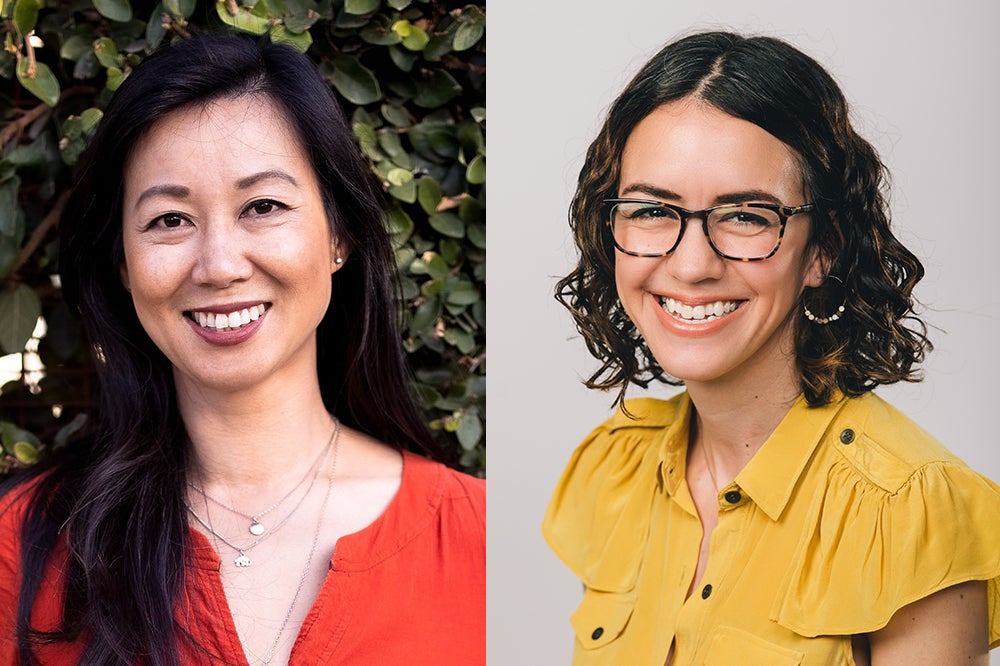
Seasoned educators and advocates for equitable and innovative ways to teach math and science, professors María González-Howard and Cathery Yeh are changing the landscape in elementary education. They are leading teams in a developers consortium that includes Northwestern University, Michigan State University, Oakland University, BSCS Science Learning, Horizon Research, Inc. and Carolina Biological Supply Company, which was recently awarded a 4-year, $7.5 million grant to develop free, high-quality, K-5 science curriculum and professional learning materials called OpenSciEd Elementary. As part of the consortium, González-Howard and Yeh are working to better understand how teaching that centers students’ questions, daily lived experiences and practices into a science curriculum can enhance learning for historically marginalized student populations.
We spoke with González-Howard and Yeh about OpenSciEd Elementary, their research and what excites them about this unique project.
Yeh: I started teaching 24 years ago in dual-language classrooms. As a teacher, I visited every student home, and caregivers and community members co-taught with me—integrating students’ lived experiences, knowledge and identities into the mathematics curriculum. These experiences guide my work and remind me that students’ identities and their sense of belonging shape learning. All curricula are culturally responsive; however, most are responsive for whom? A central commitment in the OpenSciEd Elementary Project is to promote the development of classroom spaces that support the rightful presence of all learners by developing curriculum that recognizes the diversity of students in today’s classrooms, honoring students’ cultural and linguistic assets and in supporting multiple ways of knowing, being and doing science.
González-Howard: My perspectives about science teaching have been greatly impacted by my experiences immigrating to this country and being a multilingual student in U.S. schools. Despite my own background, I then found myself feeling unprepared to teach science meaningfully and effectively with multilingual students, not having received much support in this area in my teacher preparation program. During graduate school I become interested in working to better support teachers with this area of professional development. I view curriculum as a critical way to support teacher learning, particularly curriculum that is designed to be educative by nature, such as OpenSciEd Elementary.
González-Howard: Within the OpenSciEd Elementary Consortium, I serve as the lead for the Culturally and Linguistically Sustaining Teaching and Learning (CLS) Team. The CLS Team consists of a wonderful group of folks from diverse backgrounds and with varied lived experiences who all bring expertise around supporting the STEM educational experiences of students from marginalized backgrounds. A driving goal for our team is supporting teachers to encourage, notice and leverage their students’ funds of knowledge, interests and identities and the wide-ranging ways that these elements manifest as students develop new conceptual understandings and disciplinary practices.
Yeh: In addition to serving on the Culturally and Linguistically Sustaining Team with María, I serve as the Math Integration and Support Team lead with the goal of supporting the design of curriculum materials that use mathematics as a tool to explore phenomena and problems that are relevant to students and their communities.
Yeh: I love this project; it keeps equity at the center. We are designing with equitable sensemaking for all students in mind.
González-Howard: I agree. Every student is capable of rich sensemaking of our world, developing understandings of, and grappling with, real life problems. I also like that this curriculum is being developed hand-in-hand with professional learning. We are helping teachers develop agency themselves in noticing and understanding what it means to center students as sensemakers, and how to foster classrooms that really support equitable sensemaking.
Yeh: There are so many curricula out there! However, there is a need for curriculum that honor expansive ways of knowing that allow all students to engage in the richness of what science could be. The quality of the work, the thoughtfulness of the work and the people working on the OpenSciEd Elementary project is inspiring.
Yeh: There’s still a lot of work that needs to be done in the way of making sure people understand how critical math is. Math is everywhere. It’s just a matter of how we contextualize it in our classrooms to align with its application in real life. I am committed to research and practice pathways (such as the OpenSciEd Project) through partnerships that connect researchers, policymakers and practitioners to improve opportunities to learn in STEM education.
González-Howard: These past few years I have had a few related areas of research develop—unpacking what it means to take on a disciplinary perspective on translanguaging in the context of science education; identifying and examining translanguaging instructional practices that support multilingual students’ scientific sensemaking; and developing teacher learning resources (including curricular supports) focused on integrating translanguaging. These areas of work all revolve around identifying and elevating the varied and complex ways that students use language for figuring out natural phenomena and communicating scientific ideas.
Yeh: Within the past few years, the world has seen an explosion of data figures, visualizations and analysis as experts and everyday people alike try their best to understand this now no longer novel virus—drawing attention to the importance of science and data literacies. Yet too few students, particularly multiply marginalized students, have opportunities to engage in investigations that promote meaning-making and centered on their curiosity and wonder. A question that drives my work is how can we provide opportunities for the STEM Ed community to learn together to engage in the systems-level change necessary to change beliefs, structures and practices to transgress systemic inequities?
González-Howard: I am fascinated with shedding light on the brilliance of students whose ideas and ways of engaging in science are not typically recognized in science classrooms, and figuring out what it means to foster expansive classroom environments. I also want to help teachers see multilingual students in ways beyond hyper focusing on so-called “academic language” and English-language development.

